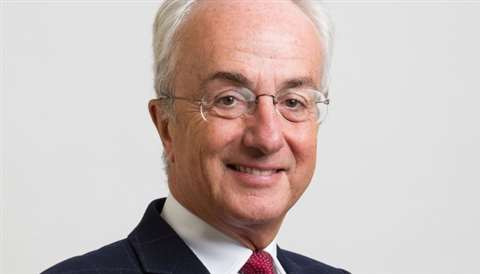Greed and timidity blamed for Carillion collapse
16 May 2018

Reckless greed among Carillion’s board members and a “rotten corporate culture” have been blamed for the company’s collapse in the final report of the inquiry into Carillion’s failure.
The report was published by the Work & Pensions and BEIS (the UK government’s Department for Business, Energy & Industrial Strategy) committees.
Rachel Reeves MP, chair of the BEIS committee, said, “Carillion’s collapse was a disaster for all those who lost their jobs and the small businesses, contractors and suppliers left fighting for survival.”
Carillion employed about 43,000 people, with 19,000 based in the UK. Since the company’s liquidation, at the start of the year, more than 2,000 jobs have been lost. According to the Official Receiver, PricewaterhouseCoopers (PwC), just over 3,000 employees are currently retained to enable Carillion to deliver the remaining services it is providing for public and private sector customers until decisions are taken to transfer or cease these contracts.
The company has also left a pension liability of around £2.6 billion (€2.97 billion), with 27,000 members of its defined benefit pension schemes now being paid reduced pensions by the Pension Protection Fund.
The 30,000 suppliers, sub-contractors and other short-term creditors for whom Carillion was said to be a notorious late payer are unlikely to get back much of the £2 billion (€2.29 billion) they are owed.
Board of directors
Despite the fact that Carillion’s board of directors presented themselves as the victims of coincidental and unforeseeable mishaps, the report suggested they were, in fact, culpable for the company’s failure because the problems that caused the collapse were long in the making.

The report singled out three particular figures – Richard Adam, who was the finance director for ten years and was the architect of the company’s aggressive accounting policies; Richard Howson, who was the chief executive between 2012 and 2017; and Philip Green, who joined the board in 2011 and became chairman in 2014 but failed to challenge the board when that was his role.
Accounting practices
The system of internal and external checks and balances intended to prevent such a collapse were said to have failed on a number of counts.
For instance, the company’s non-executive directors failed properly to scrutinise and challenge the executives.
Also, the company’s accounts were systematically manipulated to make an optimistic assessment of revenue, in defiance of internal controls. For example, when a November 2016 internal peer review of Carillion’s Royal Liverpool Hospital contract reported it was making a loss, the company’s management overrode the assessment and insisted on a healthy profit margin being assumed in the 2016 accounts. The difference between those two assessments was around £53 million (€60.68 million).
Another example was Carillion’s recognition of considerable amounts of construction revenue that was “traded not certified” – revenue that clients had not yet signed off, such as for claims and variations, and was therefore not certain to be paid.
Auditing
In the report, blame was also directed at the auditors for failing to do their job effectively.

Reeves said, “The auditors should also be in the dock for this catastrophic crash. They are guilty of failing to tackle the crisis at Carillion, failing to insist the company paint a true picture of its crippling financial problems.
“The sorry saga of Carillion is further evidence that the Big Four accountancy firms are prioritising their own profits ahead of good governance at the companies they are supposed to be putting under the microscope.
“KMPG, PwC, Deloitte and EY pocket millions of pounds for their lucrative audit work – even when they fail to warn about corporate disasters like Carillion.”
KMPG was paid £29 million (€33.1 million) to act as Carillion’s external auditor for 19 years, and yet it never qualified its audit opinion. At the same time, Deloitte, which was paid more than £10 million (€11.4 million) to act as the company’s internal auditor, was said to have failed in its risk management and financial controls role.
Also, the key regulators, the Financial Reporting Council (FRC) and the Pensions Regulator (TPR), were said to be “united in their feebleness and timidity” because although the FRC identified concerns in Carillion’s 2015 accounts it failed to follow them up, and the TPR never enforced pension contributions despite threatening to do so on numerous occasions.
Lessons
Rt Hon Frank Field MP said, “Government urgently needs to come to Parliament with radical reforms to our creaking system of corporate accountability.”
The regulatory and legal environment within which Carillion became a big corporate time bomb still exists, so the Work & Pensions and BEIS committees said it is possible for it to happen again.
Although the government has recognised this weakness, its response has been criticised for lacking “decisiveness or bravery to pursue bold measures”.
The committees have recommended that the government should refer the statutory audit market to the Competition & Markets Authority. It said possible outcomes considered should include breaking up the audit arms of the Big Four, or splitting audit functions from non-audit services.




